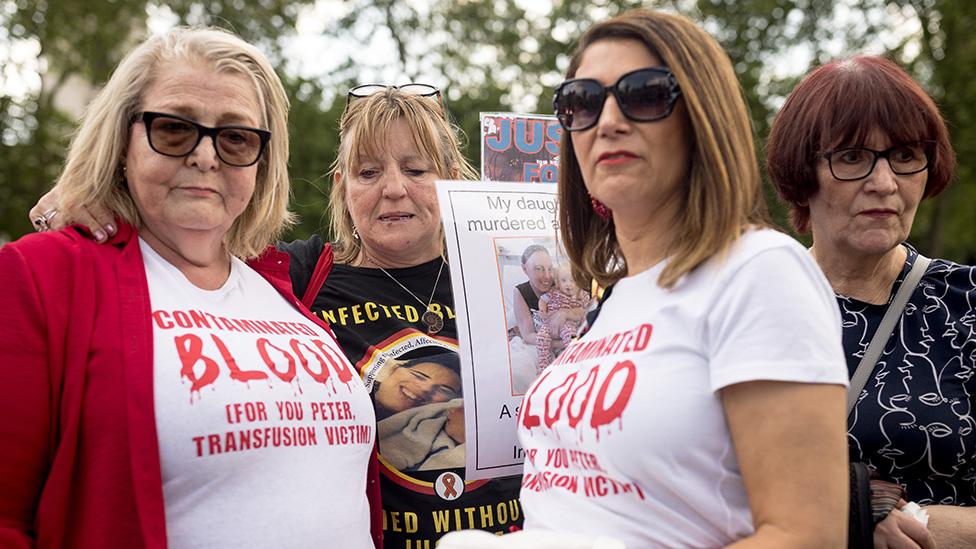London infected blood inquiry victim feels 'vindicated' but 'angry'
- Published
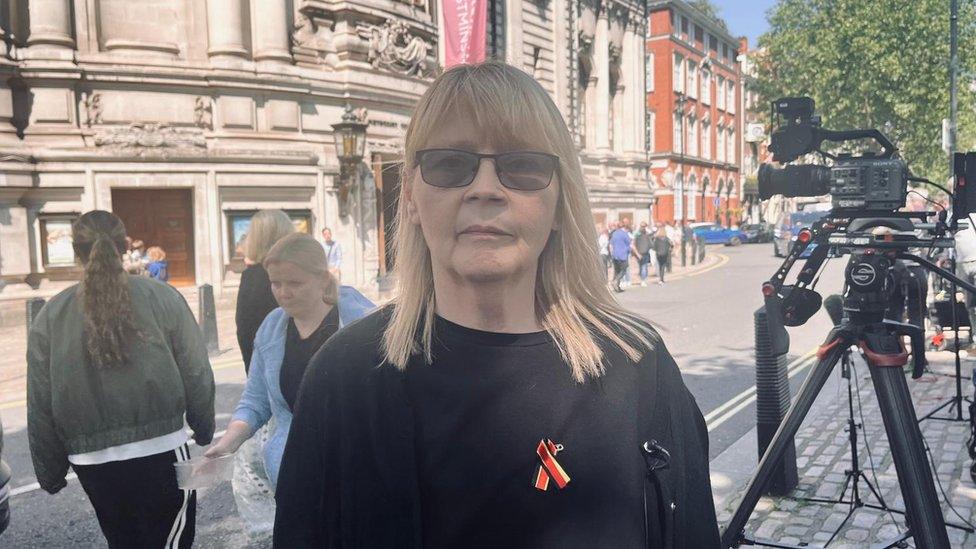
Nicola Jones was nine years old when she received a contaminated blood product at London's Royal Free Hospital
A London victim of the infected blood scandal says she has mixed feelings following the publication of an official inquiry report.
Authorities covered up the scandal after knowingly exposing victims to unacceptable risks, the report says.
Nicola Jones was nine years old when she received a contaminated blood product before her tonsillectomy at the Royal Free Hospital in north London.
"We've been vindicated," she said, but she was still "angry".
Ms Jones's medical records confirm she was given the Factor VIII treatment - instead of a safer alternative known as cryoprecipitate - in 1980.
She said doctors at the time dismissed her parents' concerns about her declining health and says her parents were never told.
It was not until 1995 that it was confirmed she had hepatitis C.
"The doctors said there was nothing wrong with me and it must be all in my head," said Ms Jones.
"The condition has had an impact on my whole life."
Factor VIII was a blood product developed to help the blood clot, to prevent bleeding for patients with haemophilia.
The product was developed by pooling and concentrating human blood plasma from up to 40,000 donors.
However the American company which developed the product sourced blood plasma from high risk sources, such as prisoners and drug addicts.
This meant just one of contaminated donor could end up infecting the whole batch.
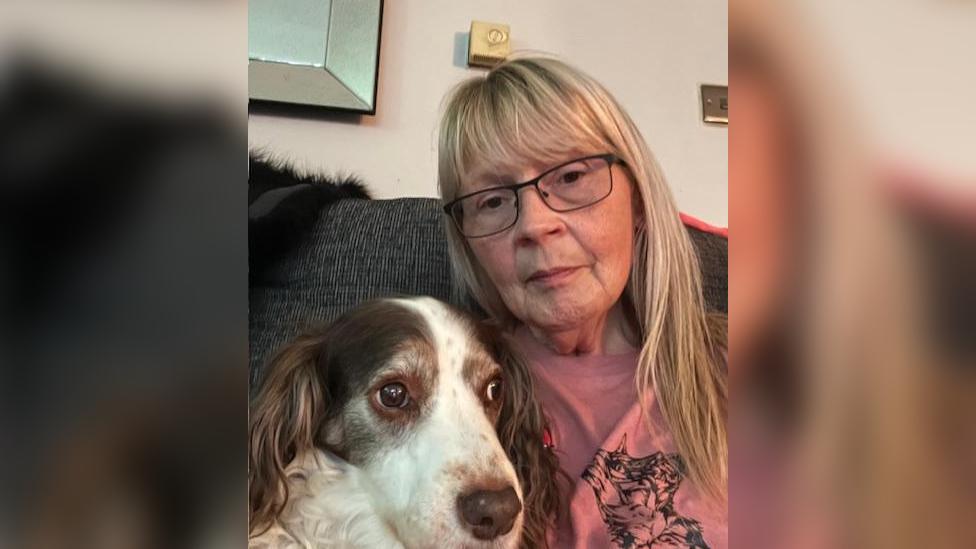
Ms Jones said she feels some sense of justice following the report, adding "at long last we've been listened to"
Ms Jones was one of 375 witnesses who spoke to the inquiry.
The inquiry identified a catalogue of failures by the NHS and successive British governments.
More than 30,000 people in the UK were infected with HIV and hepatitis C from 1970 to 1991 by contaminated products, and about 3,000 have since died.
Responding to the report, external, Ms Jones said: "For me, that's justice. We've been vindicated.
"It's vindication for me and my family, and all we went through, knowing that there was something going on and the doctors covered this up.
"At long last we've been listened to."
However, Ms Jones said she still felt "angry" and "upset" at the scale and severity of the harm caused.
"It's horrendous, it's a disgrace," she said. "People need to be held accountable for what happened."
'Downright deception'
One key role of the report was in determining if there was a cover-up.
Although Sir Brian Langstaff said he preferred the term "hiding the truth", the report found there had been a lack of openness or accountability, and elements of "downright deception" - including the destruction of documents.
The report also said patients had been exposed to "unacceptable risks".
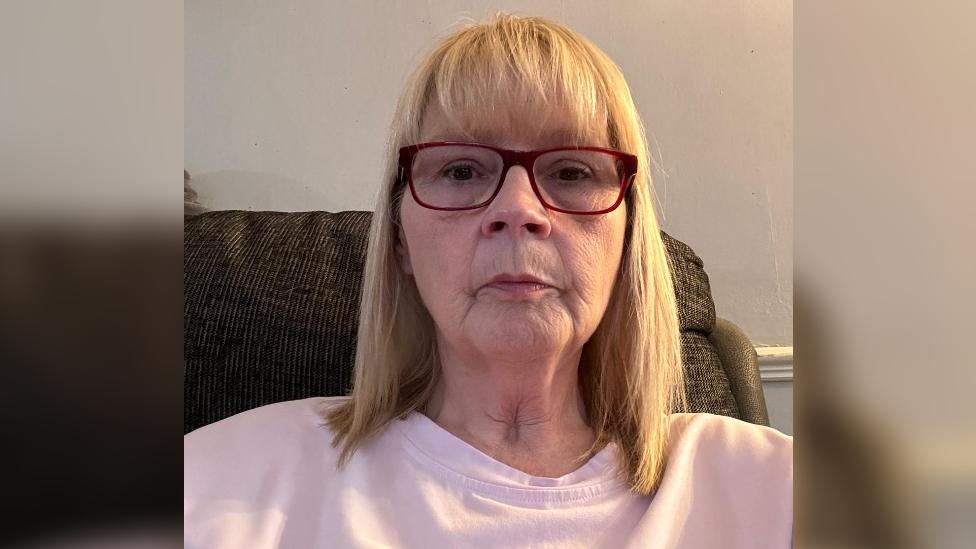
Ms Jones said "people need to be held accountable" for what happened to those affected by the scandal
The inquiry not only heard from witnesses but also some 4,000 witness statements were given by those who had been infected by the tainted blood product.
Another 1,200 statements were submitted by doctors, civil servants and politicians.
Prime Minister Rishi Sunak, in a speech to the House of Commons, offered a "wholehearted and unequivocal" apology for the "terrible injustice".
He said the UK government would provide "comprehensive" compensation - thought to total more than £10bn - to victims, with a statement to come on Tuesday.

Listen to the best of BBC Radio London on Sounds and follow BBC London on Facebook, external, X, external and Instagram, external. Send your story ideas to hellobbclondon@bbc.co.uk, external
Related topics
- Published20 May 2024
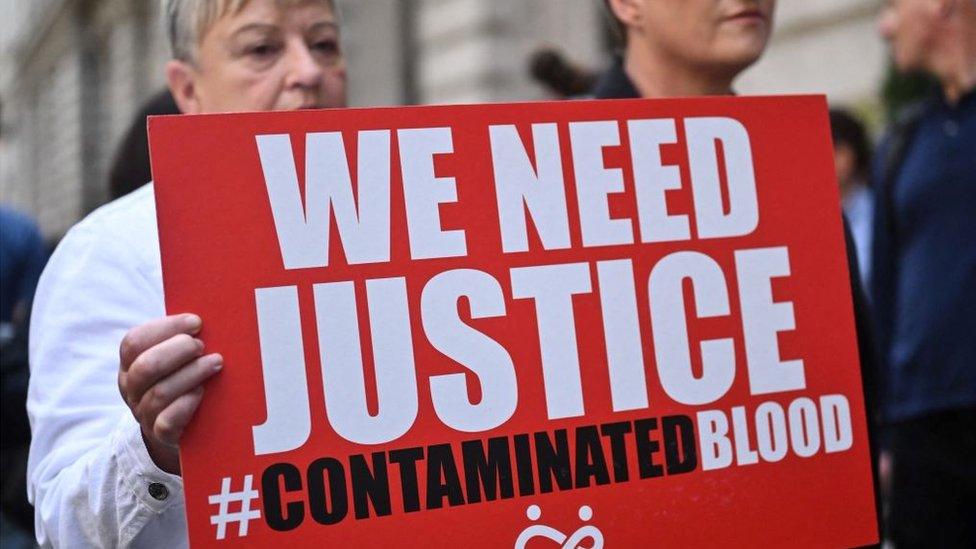
- Published20 May 2024
- Published22 April 2024
